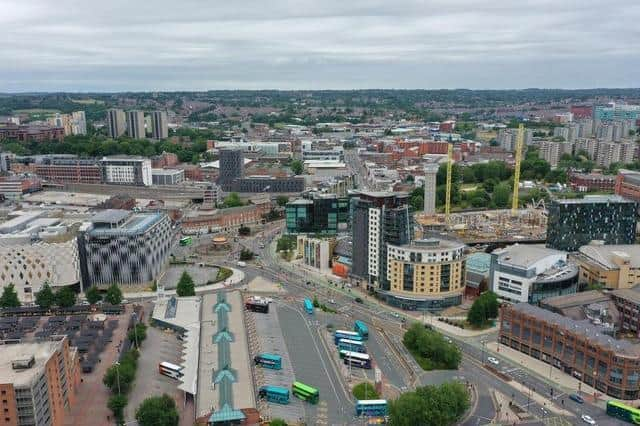Yorkshire people need to hear how levelling up will make a difference to their lives - Lisa Littlefair


So, it is little wonder that public perception of the phrase itself is characterised by confusion and ambivalence. In a YouGov poll published in late 2021, just 26 per cent of people said they “know exactly what levelling up means”.
At the other end of the spectrum, 24 per cent have ‘never heard’ the phrase, with the vast majority – half of those surveyed – floating somewhere in the middle. You would hope that the publication this month of the Levelling Up White Paper may have gone some way to shift those figures, but the jury is still out on that.
Advertisement
Hide AdAdvertisement
Hide AdFundamentally, levelling up is about equality, not geography. However, when faced with utterances like “levelling up the whole country” it is no wonder that there is misunderstanding from the public at large.
As a cornerstone policy of the current Government, hopes are high from those well-versed on the levelling-up agenda. Stark statistics abound – for example about the per-capita spending on transport in the South East (£864 between 2010 and 2020) versus the North (£349 over the same period).
Levelling up must be about creating fairer societies and opportunities for those who are currently under-served. And as businesses begin to return to the office once again, the focus will again be on levelling up, but this time set against the backdrop of a post-pandemic recovery, as businesses have a big role to play in ensuring levelling up is a success, as well as much to gain.
What is clear from our own work – particularly working in towns such as Doncaster and Morley, which have huge potential – is that levelling up needs community buy-in. Levelling up only works if residents of those places feel a tangible difference, therefore, consulting with a wide demographic in a meaningful way at an early stage and continuing this engagement
Advertisement
Hide AdAdvertisement
Hide Adthroughout a town’s evolution is vital. We cannot be in a position whereby politicians, leaders and businesses simply have to explain the benefits of levelling up. It has to be felt on the ground. It is clear to me through our experience that nobody knows their own community as well as those who live, work and play there.
Mott MacDonald has recently worked with the Northern Powerhouse Partnership on the Life in a Northern Town report which looks specifically at three towns: Goole; Bury; and Blyth.
Each has their own challenges and opportunities, but the underlying message remains consistent. Levelling up must focus on helping all local people to thrive – this means unlocking the ability to live greener, safer, healthier lives, to access well-paid, skilled jobs and educational opportunities that drive up wages and productivity.
Previously, the case has been made that big cities drain resources from towns, but the report shows that actually, the opposite can be true. Towns can be helped, not hindered by their proximity to bigger neighbours. Of course, this relies upon a joined-up approach – transport, infrastructure, devolution all feature – but that should be the ambition.
Advertisement
Hide AdAdvertisement
Hide AdThere is a huge problem with public scepticism and trust, and it is easy to see why. That is why the consultative approach and clear messaging is so vital. Of course it is important to make the economic case for levelling up, but what people need to hear is how it will make a difference to their everyday lives. This is why we all need to work doubly hard to understand the challenges and make a real difference.
By Lisa Littlefair - Leeds City Director, Mott MacDonald
